Alternative Communities
Together (ACT)
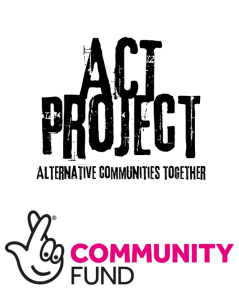
The Sophie Lancaster Foundation’s ACT project, funded by the National Lottery Community Fund, aims to radically transform the effect of Hate Crime on the alternative community. The grant of £258,928 runs over three years and will deliver resources, events and training to improve the devastating effects that Hate Crime is having on our community. See the ACT project timeline here.
In 2021, the Law Commission recommended not adding ‘alternative subcultures’ to monitored Hate Crime strands, saying there was insufficient evidence of targeted criminal behaviour. This was devastating for the Foundation – we know how many reports of Hate Crime we receive. One of the reasons Sophie’s murder resonates with the alternative community, is that so many people can relate to what happened. It could have been them – it still could be them. And the levels of abuse, harassment and violence seem to be rising, not falling.
This prompted the creation of our own survey, launched in 2022, to find empirical data on the effects that Hate Crime is having on the alternative community.
What did the survey reveal?
Want to know more about the research?
What will the ACT project deliver?
ACT will help people understand what Hate Crime is and show them how, and where, to report it. It will work to remove the current barriers to reporting and strive to ensure that when people do report Hate Crime, they receive a better service. It will also work with the criminal justice system so alternative subculture Hate Crime is identified and better understood.
The project will also capture the stories of alternative people, celebrating alternative culture and helping people to find strength in community and shared experience.
One of the main elements of the project will be an online Hate Crime Guide. This brings together for the first time, all of our advice about alternative subculture Hate Crime. It will provide support for people who suffer from targeted hostility because of their identity and help them to report Hate Crime. This will be available from late 2026.
ACT Team
We have an ACT project team made up of staff, an Advisory Board and partners, who are working together to shape and steer the project. Find out more about the ACT Project Team here.
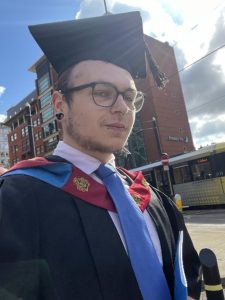 Alex (they/them) is a multimedia journalism graduate from Manchester Metropolitan University, with a focus on music, culture, magazine journalism, and anti-hate speech. They currently work in retail while pursuing photojournalism and advocacy for the alternative community.
Alex (they/them) is a multimedia journalism graduate from Manchester Metropolitan University, with a focus on music, culture, magazine journalism, and anti-hate speech. They currently work in retail while pursuing photojournalism and advocacy for the alternative community.
Alex has collaborated with the Foundation through articles highlighting Sophie’s story, community acceptance, and the dangers of hate speech. A long-time member of the alternative scene, they are passionate about giving a voice to underrepresented groups and challenging harmful ideologies.
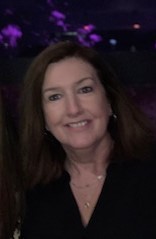 Alison is Chief Executive of the Foundation, with a background in the arts and education sectors and a strong commitment to social justice. She was first introduced to the Foundation after hearing Simon Armitage’s Black Roses: The Killing of Sophie Lancaster on Radio 4 which was a powerful broadcast that left a lasting impact.
Alison is Chief Executive of the Foundation, with a background in the arts and education sectors and a strong commitment to social justice. She was first introduced to the Foundation after hearing Simon Armitage’s Black Roses: The Killing of Sophie Lancaster on Radio 4 which was a powerful broadcast that left a lasting impact.
In her role, Alison leads the development of the Foundation, working to ensure it remains true to its mission while building on the core values that inspired Sylvia Lancaster to establish it. Having had the privilege of working alongside Sylvia, she continues to meet people at events and festivals who share their own powerful stories.
Alison is dedicated to helping the Foundation grow its impact, promoting understanding and acceptance of difference, and building safer, more inclusive communities for everyone.
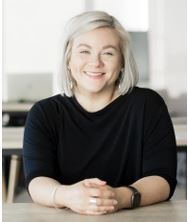 Amy Clarke has nearly ten years of experience working in the field of hate crime victimisation. Since 2021, she’s been based exclusively at the Centre for Hate Studies. Prior to this, Amy worked within the broader School of Criminology at the University of Leicester, where she combined teaching and research roles. Her expertise encompasses racism and racist victimisation, rural racism, the experiences of refugees and new migrants in the UK, as well as structural inequality.
Amy Clarke has nearly ten years of experience working in the field of hate crime victimisation. Since 2021, she’s been based exclusively at the Centre for Hate Studies. Prior to this, Amy worked within the broader School of Criminology at the University of Leicester, where she combined teaching and research roles. Her expertise encompasses racism and racist victimisation, rural racism, the experiences of refugees and new migrants in the UK, as well as structural inequality.
Amy’s research often incorporates creative and co-produced methods, adopting a strongly intersectional perspective. She is actively involved in several advisory and consultation groups, including the National CPS Hate Crime Consultation Group, the Stop Funding Hate Steering Group, and Leicestershire’s Gypsy, Roma and Traveller Independent Advisory Group.
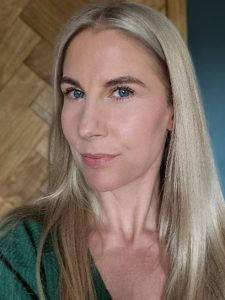 As a senior designer and brand consultant, Claire brings a wealth of experience in both digital and print design, built over years of working across a wide range of sectors and projects. She is skilled in managing the entire design process—from initial concept development through to final delivery—ensuring consistency, clarity and visual impact at every stage. Her work spans branding, marketing and communications, with a particular focus on crafting engaging multi-channel campaigns that incorporate video, animation and interactive media to maximise audience reach and engagement.
As a senior designer and brand consultant, Claire brings a wealth of experience in both digital and print design, built over years of working across a wide range of sectors and projects. She is skilled in managing the entire design process—from initial concept development through to final delivery—ensuring consistency, clarity and visual impact at every stage. Her work spans branding, marketing and communications, with a particular focus on crafting engaging multi-channel campaigns that incorporate video, animation and interactive media to maximise audience reach and engagement.
Claire was brought on board for this highly specialised project because of her deep design expertise and her ability to translate complex ideas into compelling visual narratives. Her thoughtful, user-focused approach ensures that every element of a campaign is not only visually striking but also accessible and meaningful to a broad audience. With a strong track record of delivering creative solutions that resonate across diverse platforms, Claire continues to be a valuable collaborator in projects where clarity, inclusivity and impact are key.
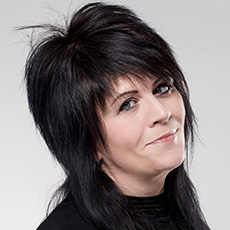
Dena is the Events and Outreach Manager at the Foundation. She joined the team in 2015 after over 15 years working in Special Needs education and two years as a dedicated volunteer.
Her role is diverse, involving the delivery of educational workshops in schools across the UK, running ‘Train the Trainer’ sessions for staff and youth leaders, managing the Foundation’s events programme, and overseeing merchandise. From major festivals like Download and Bloodstock to freshers fairs and markets, Dena represents the Foundation wherever she goes.
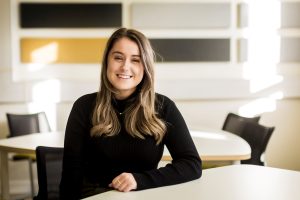 Emily has worked in the School of Criminology at the University of Leicester since 2020, with research focusing on victimisation, including hate, harassment, and exclusion. Her specialist area is hostility directed towards homeless people, though she has also carried out extensive work on hate within university settings. Emily often uses creative research methods to help amplify diverse and seldom-heard voices, enabling individuals to communicate their experiences and perspectives more fully.
Emily has worked in the School of Criminology at the University of Leicester since 2020, with research focusing on victimisation, including hate, harassment, and exclusion. Her specialist area is hostility directed towards homeless people, though she has also carried out extensive work on hate within university settings. Emily often uses creative research methods to help amplify diverse and seldom-heard voices, enabling individuals to communicate their experiences and perspectives more fully.
As a Research Assistant for the Centre for Hate Studies, Emily supports a variety of current and upcoming projects. Her work contributes to improving both local and national understanding of how hate is experienced and how institutions can more effectively respond. Through her research, Emily plays a key role in shaping inclusive and informed responses to hate and victimisation.
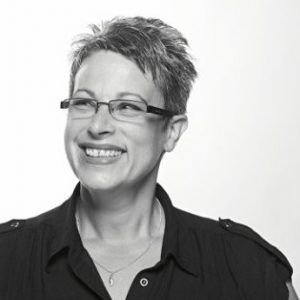
Fiona brings over 30 years of experience in marketing and communications to her work with the Sophie Lancaster Foundation. Her expertise has been instrumental in helping the Foundation shape its messaging, public engagement and strategic direction. As a long-standing Trustee and now Chair of the Board, Fiona has played a vital role in guiding the Foundation’s development and ensuring its values remain at the heart of everything it does.
In the Alternative Communities Together (ACT) project, Fiona acts as a key link between the Foundation and the specialist creative team. She helps ensure the new Hate Crime Guide reflects the lived experiences and voices of alternative communities. She has worked closely with the Creative Director and Senior Designer to ensure the guide is not only clear and impactful, but resonates with the communities it aims to support. Her ability to bridge the gap between corporate communication strategies and grassroots advocacy makes her a crucial member of the project team.
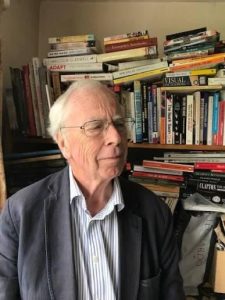
John Grieve CBE QPM was a senior detective at New Scotland Yard who played a key role in introducing Hate Crime investigations to UK policing, particularly in response to the Stephen Lawrence Public Inquiry. His work helped shape a more accountable and inclusive approach to policing.
After retiring from the police following 38 years of service, he became an academic, sharing his expertise at universities both in the UK and abroad. He was also a close friend of Sylvia and worked alongside her on the Hate Crime Independent Advisory Group.
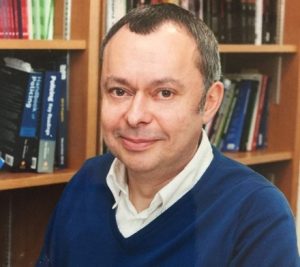 Jon is Professor of Criminology in the Department of Sociology at the University of Surrey. His research spans a wide range of areas, including hate crime, far-right extremism, racism in rural and isolated communities, policing and issues of racism, anti-racism plus disorder in football. He has published six books and numerous journal articles on these subjects, contributing significantly to the field of criminology.
Jon is Professor of Criminology in the Department of Sociology at the University of Surrey. His research spans a wide range of areas, including hate crime, far-right extremism, racism in rural and isolated communities, policing and issues of racism, anti-racism plus disorder in football. He has published six books and numerous journal articles on these subjects, contributing significantly to the field of criminology.
In addition to his academic work, Jon sits on the Steering Committee of the British Society of Criminology Hate Crime Network. He also plays an active role in promoting equality and diversity within the prison system, working across the male, female and youth estates to support inclusive practices and policy development.
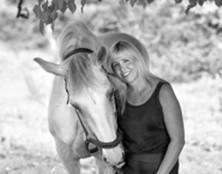 Lesley is a dedicated professional with over 32 years of experience at Bury Council, working across a range of services including adult support, youth justice and education. Her work has focused on supporting vulnerable individuals and communities, particularly children and young people facing mental health challenges, bullying, or those on the edge of care. She has played a key role in safeguarding families and promoting inclusive, supportive environments in schools and beyond.
Lesley is a dedicated professional with over 32 years of experience at Bury Council, working across a range of services including adult support, youth justice and education. Her work has focused on supporting vulnerable individuals and communities, particularly children and young people facing mental health challenges, bullying, or those on the edge of care. She has played a key role in safeguarding families and promoting inclusive, supportive environments in schools and beyond.
In addition to her current role in the Early Help team, which brings together services such as youth work and family support, Lesley delivers safeguarding training for the Bury Integrated Partnership Board. She also contributes to several strategic boards addressing critical issues like suicide prevention, domestic abuse and serious youth violence. Outside of her council work, she runs a wellbeing business offering eco-therapies, support for domestic abuse survivors and bereavement services for children and young people.
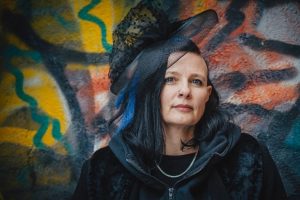 Lisa has over 25 years of experience in the arts, culture, and heritage sector, working across 13 countries with governments and NGOs. With a strong focus on policy and education, she holds a Master’s degree in Business Administration and was awarded an MBE in 2013 for her services to learning and skills. Her career took a new direction in 2019 after a road traffic collision left her disabled, sparking a personal and professional interest in disability and hate crime policy.
Lisa has over 25 years of experience in the arts, culture, and heritage sector, working across 13 countries with governments and NGOs. With a strong focus on policy and education, she holds a Master’s degree in Business Administration and was awarded an MBE in 2013 for her services to learning and skills. Her career took a new direction in 2019 after a road traffic collision left her disabled, sparking a personal and professional interest in disability and hate crime policy.
During her recovery, Lisa began writing and performing comedy as a creative outlet. Taking to the stage as Lizzy Lenco, she now performs at comedy nights, festivals and biker rallies. Her distinctive dark humour tackles serious subjects such as brain injury, disability, Goth yoga and cake, offering a unique and thought-provoking perspective shaped by her lived experience.
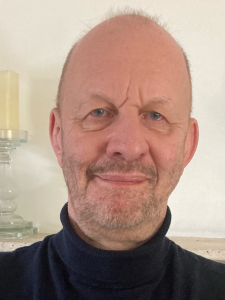 Mike currently chairs the National Police Chiefs’ Council and Association of Police and Crime Commissioners Independent Advisory Groups on Hate Crime. He also serves as a Trustee and Deputy Chair of the Sophie Lancaster Foundation. Mike’s career began in the Prison Service, where he held roles ranging from officer at HMP Lincoln to running the lifer unit at Wormwood Scrubs, and later becoming Deputy Governor at HMP Holloway. He went on to work in Kosovo during and after the conflict, organising refugee evacuations and coordinating forensic teams investigating war crimes.
Mike currently chairs the National Police Chiefs’ Council and Association of Police and Crime Commissioners Independent Advisory Groups on Hate Crime. He also serves as a Trustee and Deputy Chair of the Sophie Lancaster Foundation. Mike’s career began in the Prison Service, where he held roles ranging from officer at HMP Lincoln to running the lifer unit at Wormwood Scrubs, and later becoming Deputy Governor at HMP Holloway. He went on to work in Kosovo during and after the conflict, organising refugee evacuations and coordinating forensic teams investigating war crimes.
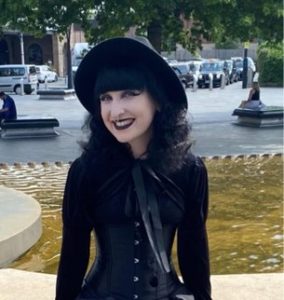 Milly is the Social Media Manager for the Foundation. She studied Vocal Studies and Opera at the Royal Northern College of Music and was deeply moved by Sophie’s story, having faced similar experiences after moving to a new city. Determined to make a difference, she organised Sophie’s Night in Manchester and later founded GothFrog Productions—a not-for-profit that hosts music events in support of the Foundation and fosters community through music.
Milly is the Social Media Manager for the Foundation. She studied Vocal Studies and Opera at the Royal Northern College of Music and was deeply moved by Sophie’s story, having faced similar experiences after moving to a new city. Determined to make a difference, she organised Sophie’s Night in Manchester and later founded GothFrog Productions—a not-for-profit that hosts music events in support of the Foundation and fosters community through music.
In her role, Milly manages social media, creates engaging content, and works to grow the Foundation’s digital presence. She’s passionate about promoting acceptance and helping others feel free to express themselves.
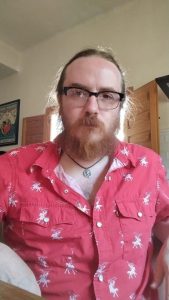 Nick is the Founder and Managing Director of Chezz Branding & Content, S.L., a communications company based in Valencia, Spain. He also leads the online radio station NQRA, which broadcasts continuously to audiences in the UK and USA. With over 25 years of experience in the communications sector, Nick has developed a deep understanding of how to connect with diverse audiences across different platforms.
Nick is the Founder and Managing Director of Chezz Branding & Content, S.L., a communications company based in Valencia, Spain. He also leads the online radio station NQRA, which broadcasts continuously to audiences in the UK and USA. With over 25 years of experience in the communications sector, Nick has developed a deep understanding of how to connect with diverse audiences across different platforms.
In addition to his communications work, Nick is an alternative musician known for his projects One Eleven Heavy, Chalaque and DSDV. His music has been featured in notable publications such as Mojo, Uncut, The Wire, Shindig! and Classic Rock Magazine. Celebrated author and journalist David Keenan praised him, saying, “No one is doing more for the future of the guitar as sonic reducer in the UK than Nick Mitchell.” With his unique blend of expertise in both communications and counterculture, Nick is well positioned to represent the Sophie Lancaster Foundation’s values to a wide range of audiences.
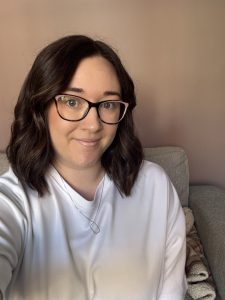 Steph is the Education and Engagement Manager at The Sophie Lancaster Foundation. With a background in secondary school History teaching, she’s passionate about promoting tolerance and encouraging young people to embrace diversity—something she believes is more vital than ever.
Steph is the Education and Engagement Manager at The Sophie Lancaster Foundation. With a background in secondary school History teaching, she’s passionate about promoting tolerance and encouraging young people to embrace diversity—something she believes is more vital than ever.
At the Foundation, Steph develops educational content, from engaging presentations to interactive workshops, and creates training for teachers and youth leaders to tackle intolerance and prejudice. She also delivers these resources in schools, colleges, and communities across the country, sharing Sophie’s story and the Foundation’s message.
Thanks to everyone who takes part in research, tells us their stories and comments on our social media posts. We use all of your testimony and evidence to shape our services and resources.
